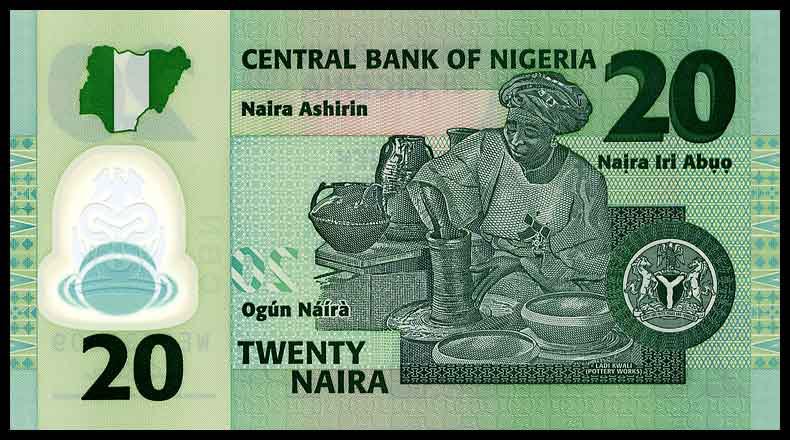Happy Birthday, N20: You can’t buy anything worthwhile but at least you can be used for this…
By Victor Akhidenor On February 11, 1977, the twenty naira note came into circulation. It bore (and still bears) the portrait of the assassinated head of state, General Murtala Mohammed. On its introduction, it was the highest denomination of the Nigerian currency. Today, at 44, it is the least “glamorous” in the family as it’s […]

By Victor Akhidenor
On February 11, 1977, the twenty naira note came into circulation. It bore (and still bears) the portrait of the assassinated head of state, General Murtala Mohammed. On its introduction, it was the highest denomination of the Nigerian currency. Today, at 44, it is the least “glamorous” in the family as it’s behind N50, N100, N200, N500, and N1000 notes in value (of course, I’m ignoring the near valueless N10, N5 notes and the kobo coins).
The main functions of money are distinguished as: a medium of exchange, a unit of account, a store of value and sometimes, (obviously not applicable to our dear N20), a standard of deferred payment. But for money to function well as a medium of exchange and the like, it must possess six characteristics: divisible, portable, acceptable, scarce, durable, and stable in value.
Our birthday “boy” is fast losing these characteristics because of its purchasing power. The purchasing power of a currency is the quantity of goods and services that can be bought with the monetary unit. Because of rising prices, the purchasing power of our dear N20 is deteriorating.
To paint a clearer picture, we need to observe the real trend in economic activities like production, distribution, consumption, etc. and account must therefore be taken of the effects of inflation, cost of living, and standard of living relating to the currency note who’s a year older today.
When it was introduced by Olusegun Obasanjo in 1977, “too much N20 were not chasing too few goods” (a simple definition of demand-pull inflation – a common cause of inflation). The oil boom of that period saw to that. The cost of living was low which helped in maintaining a certain standard of living.
The standard of living includes factor as quality and availability of employment, quality and availability of education, literacy rates, class disparity, poverty rate, quality and housing affordability, hours of work required to purchase necessities, gross domestic product, amount of leisure time every year, access to affordable healthcare, life expectancy, cost of goods and services, infrastructure, national economic growth, economic and political stability, freedom, environmental quality, climate and safety.
The standard of living is closely related to quality of life. Which is now closely related to the quantity of goods and services our dear N20 can purchase.
It’s not all gloomy, though. Our birthday “girl” can still:
Quench your thirst…twice!
After chewing some groundnuts… or gum…
I’m sure you like oranges? Take one, please…
You can’t use it to prepare fruit salad but its health benefits are much. Why not try African Star Apple which helps in losing weight and rich in Vitamin C. And it’s just N20.
Need a pen or pencil? Our dear friend can put the latter in your pocket but not the former. But then, what do you really need a pen for when you are not a pen-robber!
But above all , the N20 can proudly adorn the jersey of the senior national team, the Super Eagles. This will now restore its lost qualities as it will make it a medium of exchange, a unit of account, a store of value and a standard of deferred payment.
I’m sure you have the note in your wallet right now. Bring it out and say to it: “many happy returns”.
Happy birthday, N20. I’ll celebrate you with two bottles of Heineken. I don’t mind if I must bring 34 of your kinsmen along!
